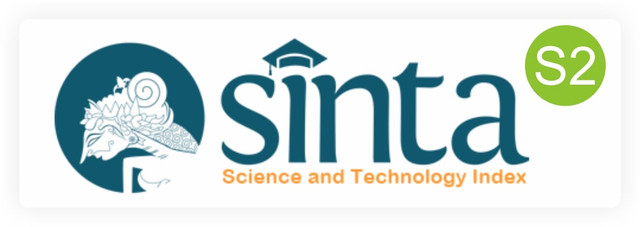EFEK PROTEKTIF EKSTRAK ETANOL HERBA PEGAGAN (Centella asiatica (L.) Urban) TERHADAP PEMBENTUKAN KATARAK TIKUS WISTAR YANG DIINDUKSI SODIUM SELENIT
DOI:
https://doi.org/10.12928/pharmaciana.v2i1.638Keywords:
Centela asiatica, sodium selenite, histopathologic, lensAbstract
Cataract is one of the eye pathology that can cause blindness. Oxidative stress
has been identified as an initiating factor of cataract. The objective research was to
study the protective effect of ethanol extract Centela asiatica toward cataract formation
on Wistar rat induced by sodium selenite. Cataract was induced in 9 days old Wistar
rat, which 5 groups of 7 each. Group I got injection aquadest and the test groups got
injection CMC-na (group II), vitamin E dose 378 IU/kg bw (group III), ethanol extract
Gotu cola herb dose 100 mg/kg bw (group IV), and 200 mg/kg bw (group V), 400
mg/kgbw, subcutaneously, respectively, for 3 days. After 4 hours, all rats got injection a
single dose 50 ug/kg of BW sodium selenite intraperitoneally. Then eyes were observed
in all groups on postnatal day 16, when the eyes of the rat first opened. Then percentage
of cataract incidence were calculated. Finally, rats were executed and eyes were taken
for lens histophatological analyses with hematoxiline eosin staining. Based on
macroscopic and microscopic analyses it can be concluded that ethano extract of
Centella asiatica had protective effect toward cataract formation on Wistar rat induced
by sodium selenite. The least cataract incidence was showed at dose 200 mg/kg bw.
Downloads
Published
Issue
Section
License
Authors who publish with Pharmaciana agree to the following terms:
- Authors retain copyright and grant the journal the right of first publication with the work simultaneously licensed under a Creative Commons Attribution License (CC BY-SA 4.0) that allows others to share the work with an acknowledgment of the work's authorship and initial publication in this journal.
- Authors are able to enter into separate, additional contractual arrangements for the non-exclusive distribution of the journal's published version of the work (e.g., post it to an institutional repository or publish it in a book), with an acknowledgment of its initial publication in this journal.
- Authors are permitted and encouraged to post their work online (e.g., in institutional repositories or on their website) prior to and during the submission process, as it can lead to productive exchanges, as well as earlier and greater citation of published work.


1.png)











